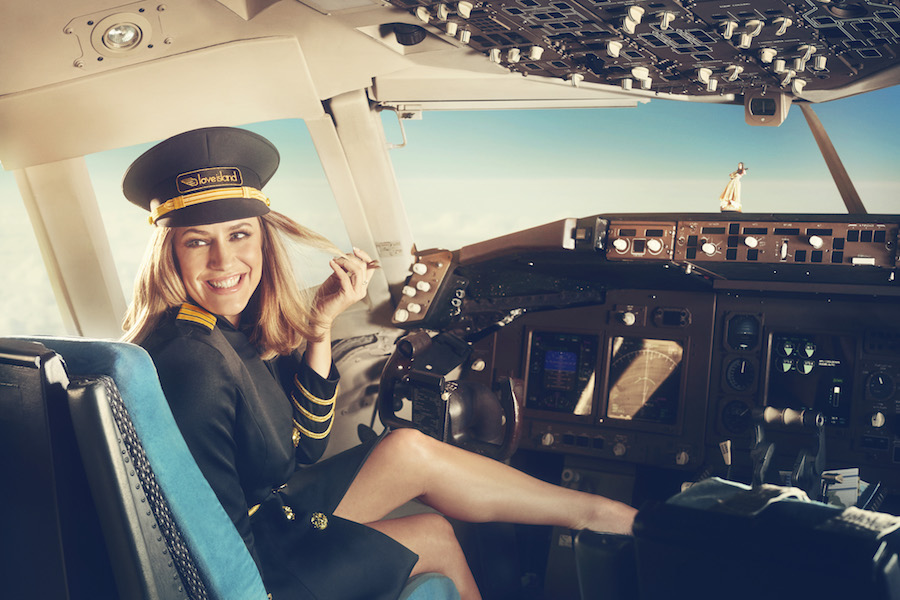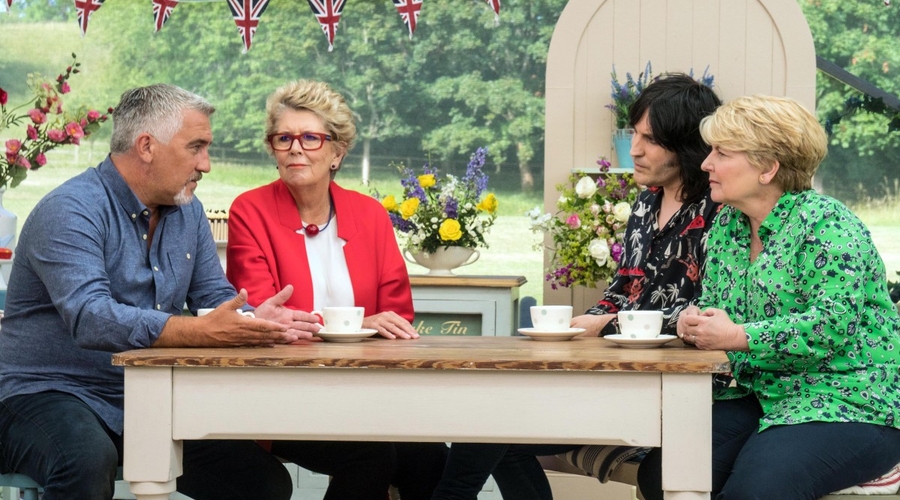If you think it’s easy to relaunch a hit format, think again, hears Matthew Bell
Over the past few years, Love Island, Dancing on Ice and Blind Date have been dusted down and put back on public display, bringing audiences to broadcasters and profits to producers.
If it were always so simple, broadcasters would now be planning the return of At Home with the Eubanks and Young, Dumb and Living off Mum, and everything in between.
It isn’t. Rebooting shows successfully is a complicated art, as the audience discovered at an RTS event in June, when a panel of top TV execs discussed how to breathe new life into old formats.
“Making shows great again” took place a day after the triumphant return of ITV2’s Love Island, which attracted a peak audience of 3.4 million during its series opener. It averaged 2.95 million viewers, more than double the audience for the previous year’s first episode.
The format first surfaced in 2005 as Celebrity Love Island on ITV, was refitted as Love Island for a further series and then scrapped. It returned in 2015 on ITV2. “When it came back, it managed to find a young, fresh, genuinely new audience for something that still brought an original fan base,” said Ella Umansky, head of formats support at ITV Studios, which makes the reality show in partnership with the Motion Content Group.
“Having that kernel of the original brand to latch on to gave ITV2 a little bit of confidence that there would be some press pick-up and a few original fans who wanted to come back to it,” she said. “But [then we needed to] modernise it – you can’t just copy and paste it for a new generation.”
“A lot of the best ideas are big and simple – and can be explained in 30 seconds"
“We took a risk to de-format the format and allow the producers to make the show that is coming through organically and follow those stories that are coming out from the contestants. “Then, you get something that feels 100% new and modern.”
Huge numbers of people applied to star in the latest season of Love Island. “We are very careful to make sure it has a diverse [cast],” said Umansky. “It’s not just young hot things with hot bods. It is that, to a degree, but also they are people who you can see yourself in, who have got real characters.”
Richard McKerrow, the co-founder of Love Productions, which makes The Great British Bake Off, said: “I’m not interested in what’s been done before.” He argued that the popularity of Love Island had nothing to do with it being a rebooted old format.
Rather, it is enjoying success because “it’s bloody good and really, really well made. And because it’s doing something different and distinct that hasn’t been done somewhere else.
“That’s the real test – has it ever been done before? That is what drove us with Bake Off.”
He added: “A lot of the best ideas are big and simple – and can be explained in 30 seconds.”

ITV brought Dancing on Ice, last seen on screens in 2014, out of the deep freeze this year. “When everybody knows what the show is, you can move it on a lot easier because you don’t have to remind people [about] the basic show. You can develop a new look and feel to it,” argued Umansky.
Blind Date, which originally ran on ITV from 1985 to 2003, was revived by Channel 5 last year, with Paul O’Grady replacing one of his great friends, the late Cilla Black, as host.
Channel 5 commissioning editor Sean Doyle described the dating show as the antithesis of programmes that are “too cool and too modern”. Blind Date, he said, was “sweet and warm”.
The first series of the returning show, said Doyle, was “very respectful of the format”. With the second series, which began in June, he revealed that the production team has moved beyond the original format, taking more risks with the casting. “It’s more free,” he added. “Paul’s gone rogue in a big way.”
One other major change to the boy-meets-girl formula of the original is that Blind Date now welcomes LGBTQ participants.
“Viewers don’t want to see meanness and spite...they want warmth and kindness, which is really what we wanted to [capture] on Blind Date”
Escape to the Country, which has been on air since 2002, is one of many formats that Camilla Lewis, now the joint CEO of Curve Media, has worked on over the years.
When she was head of factual features at TalkbackThames, she helped to save the house-hunting show from the BBC axe. “It’s still on air and still one of the greatest hit shows that BBC Two has ever had,” said Lewis. “What’s at the heart of a [successful format] is good storytelling.”
The Great British Bake Off, Blind Date and Love Island, argued Lewis, are beneficiaries of a new “niceness” in broadcasting. “Television has woken up in the past couple of years and [decided to] do nice stuff,” she suggested. “Love Island might tease, but it’s not mean and nasty. Blind Date is a total warm bath.”
“Viewers don’t want to see meanness and spite,” agreed Sean Doyle. “They want warmth and kindness, which is really what we wanted to [capture] on Blind Date.”
Umansky said that “all of the big brands that last or keep coming back, they’ve all got something at heart that is universal. They all come down to love, food, and money – something you can really identify with.”
Hosts, too, are important. Doyle said that securing O’Grady to front Blind Date was instrumental to its success.
“Top Gear is a really good example of a great format, which had super hosts,” pointed out Lewis. “[On the BBC,] the format has floundered without the great hosts.” These hosts – Jeremy Clarkson, Richard Hammond and James May – launched a new show, The Grand Tour, on Amazon in late 2016.
“The hosts have floundered a bit without the format,” she argued, adding: “There’s no one algorithm; if there was, we’d all be multimillionaires.”
The RTS early-evening event ‘Making shows great again’ was held at the Cavendish Conference Centre in central London on 5 June. It was chaired by entertainment journalist Caroline Frost and produced by Martin Stott and Dan Korn.
Question & answer
What do you look for in potential Love Islanders?
Ella Umansky: It’s all about personality.… You’re asking people to bare their souls… so, you’ve got to have contestant welfare at heart. You’ve got to feel that someone is going to cope well over six weeks of having the nation’s eyes on them.…
We also want to know what makes them tick, because so much of the format is about trying to pair people up. We are trying to find people who are going to surprise you.…
Casting is an area where you really can take risks and push the boundaries.
Where are the black, female hosts of Saturday-night shows?
Camilla Lewis: Every single channel is obsessed about diverse talent and has been for a long time – it is not news in the industry.… If we don’t have diverse talent, we’re not representing Britain. [But] I don’t do Saturday-night shows, so you might well be right.
Are old shows being brought back because commissioners are too risk-averse to green-light original ideas?
Camilla Lewis: Commissioners are anxious [about] taking a risk on something new.… Trying to persuade commissioners is really hard and what you need is real confidence.…
It’s a really insecure market… for certain channels more than others. Channel 5 is pretty robust in terms of how it approaches commissioning, because it has a leader [Ben Frow] with a very clear [view] on what he wants to do.
Sean Doyle: Blind Date was risky for us, more so because we don’t do entertainment.… I didn’t feel like it was an easy [option].
Richard McKerrow: Risks are still being taken. It’s our responsibility as producers to persuade [commissioners] to take risks. Bake Off was a massive risk – it took me four years to persuade them.…
[At Channel 4, CEO] Alex Mahon appointing Ian Katz as director of programmes is a risk. What Ian is starting to do is exciting – he commissioned a fast-turnaround documentary [Mo Salah: A Football Fairy Tale] that was made in 12 days.… It’s too easy sometimes to blame broadcasters and commissioners.
How do you make shows travel globally?
Ella Umansky: Listen to what the market is asking for.… It’s about walking the fine line between maintaining your brand and saying, “No, that is not Love Island or Come Dine With Me – you can’t do that,” and listening to people when they say, “That’s not going to work here.”
We represent Hell’s Kitchen, which everyone thinks they know as a big, bad, shouty show with Gordon Ramsay, where he swears at everybody, which, in some countries, it is. [But] we have a female chef in Brazil, which gives the show a different [feel]. And in Bulgaria, it’s a stripped show, three or four nights a week.
New talent in an old recipe
In 2017, The Great British Bake Off swapped channels to Channel 4 and shed most of its presenters and judges – but it has remained hugely popular with critics and viewers alike.
At the RTS early-evening event, Love Productions co-founder Richard McKerrow discussed the transfer of his indie’s hit show from the BBC. ‘It was to protect the format,’ he said, adding: ‘It wasn’t all about the money, as had been reported.
‘Ultimately, we felt that the format was under threat remaining at the BBC – it wasn’t something that we wanted to do; it was something we felt impelled to do.
‘Channel 4 felt the safest place for [Bake Off], because it is a public service broadcaster. If you look at the history of our productions, nearly all our programmes have been for the BBC or Channel 4, a few for ITV. Essentially, we’re a public service producer.’
Post-transfer – with original judge Paul Hollywood joined by Prue Leith and two new hosts, Sandi Toksvig and Noel Fielding – The Great British Bake Off remains the same show. ‘That’s because the format was the heart and soul,’ explained McKerrow. ‘We had a saying, which goes back to [the first series in] 2010, “Love the bakers; love the baking.” And that is still absolutely the case.’
McKerrow described Bake Off as Love’s most ‘radical’ programme. ‘It doesn’t look radical,’ he said. ‘But it’s possibly one of the most all-inclusive, multicultural [shows], with cakes and baking skills from all over the world, characters that are from anywhere and everywhere.’
He added that Bake Off cast people who are passionate about baking, not ‘about being on telly’.
Add these ingredients to the new presenters – the co-founder of the Women’s Equality Party (Toksvig) and a ‘gothic rock ’n’ roller’ (Fielding] – and the show, he said, became the ‘all-inclusive story of Britain’.







